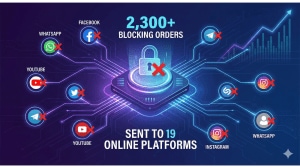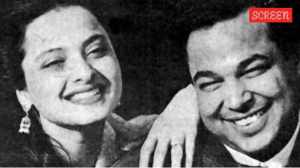Civil service is a dream for many students in India. To conquer their goal, aspirants spend a lot of money in preparing for the exam. Thus, the affordability hurdle in UPSC preparation is a reality. Mohit Jindal, an educator, mentor and co-founder of a leading Test prep company answers some relevant questions from his personal experience and provides some valuable insights for students who want to aspire for India’s most coveted job.

Mohit Jindal: During my own days as an aspirant of UPSC in Old Rajinder Nagar (Delhi), I came across images and stories which were eye-openers for me. I was from a privileged background but I saw my fellow aspirants preparing for this examination with a huge financial burden. Their families had borrowed money, mortgaged land and other properties to pay the fees of coaching institutes. It is unbelievable for privileged people like us to understand the amount of pressure and miseries that such students and families go through.
It should be noted that along with the coaching fees, a student spends on an average around 5-6 lacs per year. More over it is a multi-year preparation. Therefore, affordability is a key factor in UPSC preparation and a solution is needed.
Manas: How do you see the affordability hurdle in UPSC preparation?
Mohit Jindal: I have studied at IIT. It is one of the premier institutes of India. But sensitization toward real problems of society only happened when I started preparing for UPSC. From the syllabus of the examination to the eco-system and peer group everything teaches us important aspects of life. Connecting the two threads of theory (which the syllabus provides) and practice (the struggles of aspirants to deal with the pressure of problems like affordability) tells us that there is a problem that needs to be solved.
Manas: How are online platforms advantageous for UPSC Aspirants?
Mohit Jindal: The online sector is catching up very fast to replicate the advantages of the offline sector. The quality of education, the faculty, the study material, the mentorship etc. I will categorically mention that online platforms give aspirants the opportunity to start preparing from their college days. They don’t have to wait to join an offline center till they pass out of college.
Story continues below this ad
Also, one of the biggest advantages is that students can avail courses at an affordable price wherever they are. Live classes can give them a feel of an offline center as well.
Manas: Teacher-student interaction is an important part of any education. How do the online platforms or ed-Techs deal with this element?
Mohit Jindal: Earlier in modes like a pen-drive medium of providing education, the interaction was a problem. But now technology is very advanced. Teacher-student interaction also takes place during the live session and also through mentoring outside live sessions. Live classes are not just lectures. There are live doubt sessions that also allow aspirants to give feedback. In fact, a student sitting in south India or the northeast doesn’t need to pack their bags and come to Delhi to ask doubts. That is a big advantage.
Manas: How does an aspirant select an Ed-Tech or online platform?
Story continues below this ad
Mohit Jindal: Many Ed-Techs start on the YouTube platform. This gives an opportunity to an aspirant to assess the content, faculty and brand before joining and paying the fees for the course. So, an aspirant can take a very conscious decision based on videos on YouTube. Our own data tells us that many aspirants watch the content for 3-4 months on YouTube and then take a call to join Ed-Tech. I see it as the transparency of the online medium. This advantage is not available in offline centers. And of course, as I mentioned earlier affordability is also a factor.
Manas: An online platform can have many students but the teachers are limited. How does a teacher provide mentorship to so many students, solve their queries or individual doubts and provide personalized mentoring?
Mohit Jindal: This is a very important question. This is the problem which we faced too. On the problem of personalized mentoring, one solution is one-to-one mentoring. In fact, allow me to mention that the UPSC journey is not just an academic journey. Problems of aspirants can be non-academic as well. Such a journey requires a dedicated mentor who is a planner, a serious listener and a motivator for individual aspirants. There is a ‘zoom-in, zoom-out‘ phrase I often use. Say, a student is dealing with a ‘zoom in’ problem.
They are continuously thinking about it without understanding if it is relevant or not. A mentor has to give them a ‘zoom-out’ perspective by putting their problem in the right context and helping them to come out of stress.
Story continues below this ad
Manas: Do you think classroom teaching is not relevant anymore with the booming of Ed-Techs?
Mohit Jindal: I will like to answer this question in a comparative form to know what problems are being solved by both mediums. Both online and offline have their own markets. Online platforms have a huge advantage of accessibility and affordability. Offline classes have an eco-system. Having said that, online is trying to replicate the ecosystem of offline classes through the available technologies. What is more important for me is that a student who dreams to become a civil servant and serve the country should not quit just because he cannot travel to Delhi for coaching. One tool that we are trying to create is cohorts for aspirants. Hopefully, it will be an added bonus for students.
Manas: So, what is the future- online or offline?
Mohit Jindal: The answer is the Hybrid model. Affordability and accessibility are what online platforms can provide. The eco-system especially the examination center feel can be an offline contribution.
Manas: What do you have to say about the online mediums which are not doing well?
Story continues below this ad
Mohit Jindal: Before answering that let me make it clear that affordability does not mean providing cheap content in terms of quality. Quality trust is an important aspect of education. That is the most basic element for Ed-Techs. One cannot survive if their basics are wrong. A sustainable model based on good quality and affordability will only survive. Mantra is simple- have a student-centric approach.
Manas: Is newspaper reading relevant for online UPSC preparation as well?
Mohit Jindal: Newspaper is an essential part of UPSC preparation- offline or online. I personally have been a regular consumer of news from The Indian Express. From my preparation days for civil services till today, I have been following selected authors and columnists of Indian Express. In fact, the Explained section of The Indian Express is an extremely useful source of information for aspirants and teachers. It is made for UPSC. The amount of incisiveness and objectivity it brings to the table is remarkable. I sometimes feel the Explained editors are writing for UPSC aspirants as their target audience. It is so good!
Also, I must mention that the recent initiatives of The Indian Express- UPSC Essentials and UPSC Key are phenomenal sections. The Indian Express is coming up with content keeping students in mind. This is similar to an ideology that I and my team follow. We believe that teaching and mentoring should be student-centric. Provide them with what students demand. That is the best way to do things.
Story continues below this ad
Sharing his message for UPSC aspirants, Jindal says, “UPSC preparation is about building a perspective on India’s problem and coming out with solutions. The preparation for civil services gives one an opportunity to know about those problems and come out with some solutions. Other avenues like books, films, traveling or simple conversations also enlightens one with knowledge and information. It prepares us for the future responsibilities coming our way as civil servants.” He also recommends movies directed by Shyam Bengal like Manthan that connect one to ground realities to watch for recreation.
Exclusive takeaways from Mohit Jindal’s interview:
It should be noted that along with the coaching fees, a student spends on an average around 5-6 lacs per year. Remember, it is a multi-year preparation. Therefore, affordability is a key factor in UPSC preparation and a solution is needed.
Connecting the two threads of theory (which the syllabus provides) and practice (the struggles of aspirants to deal with the pressure of problems like affordability) tells us that there is a problem that needs to be solved.
Story continues below this ad
There are live doubt sessions that also allow aspirants to give feedback. In fact, a student sitting in south India or the northeast doesn’t need to pack their bags and come to Delhi to ask their doubts.
Let me make it clear that affordability does not mean providing cheap content in terms of quality. Quality trust is an important aspect of education.
What is more important for me is that a student who dreams to become a civil servant and serve the country should not quit just because he cannot travel to Delhi for coaching.
The Explained section of The Indian Express is an extremely useful source of information for aspirants and teachers. It is made for UPSC.
Story continues below this ad
I must mention that the recent initiatives of The Indian Express- UPSC Essentials and UPSC Key are phenomenal sections.


































